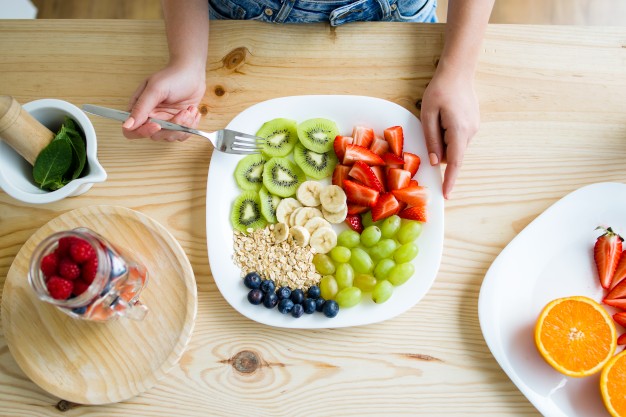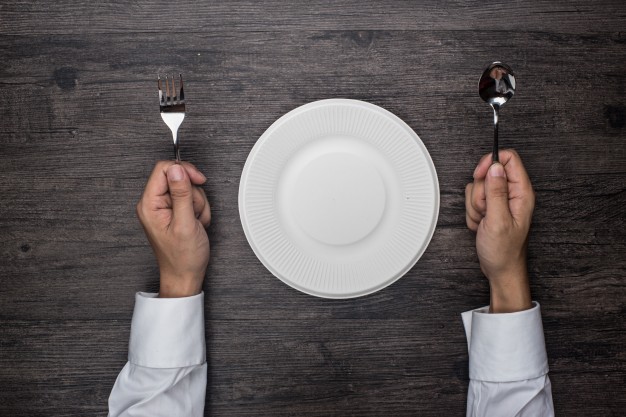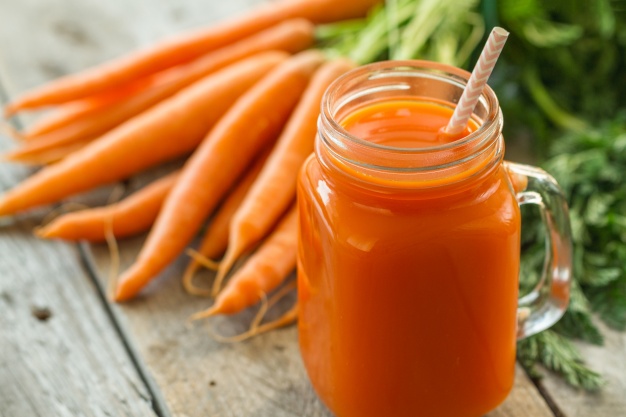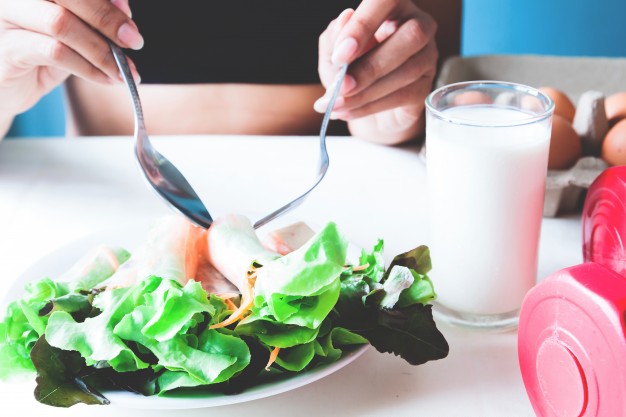Dear Pooja,
I am a 33-year-old single woman and lean on the heavier side. I’ve tried numerous diets but the effects taper off after a while. I have heard a lot about gluten and how a gluten-free diet is supposed to work wonders. Could you tell me the advantages of going gluten-free? Are gluten-free foods expensive and available easily in the city? Thank you.
Gluten-free does not only work wonders but it is the only way one can eat and prevent intestinal damage and other autoimmune diseases – but that is only for those with celiac disease or severe gluten intolerance! For those with these conditions eating gluten can be lethal and can cause severe damage to their intestines thus they are forced to follow a gluten-free diet – no other choice. Ask them how difficult it is to eat regular meals at home or at restaurants and how careful they have to be scrutinizing each product label for even minor traces of gluten in it, which can cause them deadly damage.
In the health and diet industry anything can become a rage or trend. Few prominent people follow it and say they do and lo behold half the world is trying it out. Living off gluten is not easy – imagine your daily diet without access to wheat, barley, rye, barley roti, parathas, biscuits, breads, pasta, noodles, couscous, semolina, spelt even ready to eat soups, processed cheese, mayonnaise, ketchup, salad dressing, non-dairy creamers, canned baked beans, icecreams, flavoured coffees, breaded foods, cereals, malt vinegar, beer, vodka and the list can go on. Are you prepared to let go of all these foods just so that your body can let go of some weight? Even if you can for while – any results you get will only be for the time you will stay off them – once you start eating gluten all the effects will be difficult to maintain and all the weight lost will be reversed.
Losing weight is not about deletion, it’s about sustenance. Eat all foods but learn the key in terms of quantities and methods of preparations. Start what you can always maintain (lifestyle) so that the effects you get can also always be maintained and you never have to do another weight loss battle again.
Dear Pooja,
I am a middle aged woman. I regularly suffer from acidity. Digesting food easily is difficult for me. Even when I fast for the whole day, I suffer from acidity. This is why I have also been unable to gain any weight since a number of years. Although my appetite is normal, the acidity becomes a problem. What should I do?Acidity is an ailment that we all have suffered from at one time or another. Do remember acidity is a sign our body is trying to give us. The most obvious signaling is because of large gaps between meals. Our gastric lining produces the acid as a means to aid digestion – as its enzymes only activate and function in an acidic medium. When the gaps are too long this acid starts corroding it’s own lining causing ulcers. One of the best ways to neutralize the acid produced is to give it the food, this way the lining of the stomach is always protected and belching, heart burn or acidity is kept well at bay. Fasting sadly is not helping this process unless you eat a fruit or some milk every few hours. One of the easiest ways to eliminate acidity is to eat a fruit within the first half to hour of rising – this helps break the long gap between dinner the night previous and breakfast. Avoid starting your day with caffeine – your must have cuppa of tea or hot coffee first thing in the morning only triggers the acid producing cells to work better and faster. Line the tummy with some food first – if not a fruit then a toast or khakra or a biscuit and let the tea follow 20 minutes later. Acidity may be a minor ailment but if left uncorrected can be the cause many bigger problems like frequent sore throat, nagging recurrent cough, migraines, dental cavities just to name the basic few.
Dear Pooja,
I have erratic work hours and don’t get to eat on time. I do carry small snack pouches with walnuts, almonds, anjeer and small boxes of kurmura. I munch on fresh fruits between meetings sometimes. These help me through the day. However, after seven in the evening, sometimes our conference meetings last for continuous hours (8pm to 11pm). I know it is not right to eat late but staying up for so long (I reach home by midnight) makes me very hungry. What is the ideal food / drink that i can have before i sleep? I cant go to bed so hungry but I dont want to eat anything heavy or anything too sweet.
So happy to hear that you have learned the magic of eating small frequent snacks through the day and carry a handbag as heavy as mine – stuffed with more food than any other little things! LOL! Keep that up!
Of course you can’t sleep on an empty stomach – no one can. I know people have their own busy chaotic schedule and food doesn’t fit into the pattern many times. But you are doing a great job through the day and you could continue doing the same through the latter end as well. I’d suggest you should have your dinner early just before you enter these long marathon meetings. It could be simple frankie wraps or stuffed rotis or mixed rice with sprouts and veggies or a sandwich (all of these taste fine even when eaten cold). Through the meetings you could just gobble down a biscuit or some chana on your way in or out of a quick loo break – that way you still eating two hourly. And then once your home you are not ravenous since you ate a filling meal at 8pm (and every two hours in between) so now you could have a warm soup or a bowl of dal or a cup of milk with little fruit immediately as you reach. By the time you unwind and get into bed a good 30-45 minutes have passed and you are then good to call it a day and snooze! Good luck! And never stop the small frequent snacking.
Dear Pooja,
I am a 22-year-old woman suffering from DHT (which is now above borderline.) I weigh 60 kgs and my height is 1.65.1 cms. I had lost weight almost a year ago and have been on medication for DHT for over a year, yet it has not come in control. I will soon be going abroad for studies and I’m scared of weight gain. I’m very fond of eating eggs. How many times can one consume eggs in a week? Are there other foods that I can eat with eggs, which won’t affect my DHT levels adversely? I suffer from constipation as well. Please suggest a diet I can follow when I’m outside the country.Dihydrotestosterone (DHT), a derivative of the male hormone testosterone, is the enemy of the hair follicles on your head. DHT shrinks hair follicles, making it impossible for the healthy hair to survive. Attacking more men than women but sometimes certain factors tied up to the action of hormones, including, ovarian cysts, taking high androgen index birth control pills, pregnancy, menopause or then even heredity can make us more prone to being the victims of DHT attack. Reducing this hormone with medication in conjunction with a balanced nutritious daily eating can help you save your crowning glory in time. Fresh fruits and vegetables will give the essential vitamin A that only promotes a healthy scalp but also promotes hair growth. Thus include at least 2-3 servings of vegetables and fruits each daily, I’d emphasis strongly on glass of fresh raw veggie juice daily which is not difficult whether you live here or any part of the world. Fruits and vegetables also help you procure the B complex vitamins which are very essential for healthy hair growth. Omega 3 is another focal point so try to include some fatty fish in your diet two-three times a week – eggs on the hand can be part of your daily diet. Eat egg whites daily anywhere between two-four a day and a yolk about twice a week depending on your cholesterol levels. These help keep the proteins levels high that is another important trick to prevent unwanted hair loss. Ample water, three-four hours of exercise a week and minimum indulgence with high sugar, high fat foods shall help you maintain healthy weight and hormones levels to nip the problem soon. Good luck!
Dear Pooja,
I am a 18-year-old girl and my dietician has suggested me that I drink tomato and spinach juice every day. However, I don’t like the taste and find it difficult to drink. Is there an alternative to this?
Your dietitian has only your best interest at heart when she recommends a vegetable juice for you daily. If you inculcate the habit of chugging down one fresh glass of potent natural vitamins, minerals and anti oxidants today at 18 years of age you will never need to pill, dermats and ageing treatments at any age. Nutrition from the plate and not a pill. I’m sure the combination is not locked for you and you can take any vegetables (I’d suggest minimum three) of different colours (for a variety of anti-oxidants) to make you juice daily. The key to its magic is immediately preparation and consumption so that no vitamins are lost and oxidized in translation. Add flavours like celery, ginger, lemon, mint and coriander to enhance the taste. Also I would recommend that a minimum of 50 percent of the roughage be retained in the juice so that your fibre intake of the day also gets done. The vegetable juice daily helps in better bowel movements, clearer skin, stronger hair, longer nails, more energy, better stamina, lesser hairloss, improved immunity, reduced episodes of cold and cough……what more can you ask? So go slurp down a glass of veg juice now! All of you.
Dear Pooja,
With Diwali just over, I know I have sinned with my eating and exercise. How do I make up? How do I pick up all the efforts where I left off?
To err is human, right? Well, to fall off the wagon is expected of many but the intensity and gravity to ‘want’ to get back on is that demarcates achievers from the non-achievers. Clap, roll and drums to those who resisted the temptations the week had to tickle and tempt us with – really will power and motivation is an acquired skill, the more you practice the stronger and more successful you get with it. But the cause to get back on track is also noble and commendable (many lose the way just about here) and good part is that it is not difficult to do the same. The first efforts I’d focus on are to get the total oil/fat intake of the day in control. Be more vigilant in the kitchen if maids are cooking or better still you take the initiative – this is the backbone to controlled calorie intake per day. Ensure an hour (or may 80mins/day) of cardiovascular activity at least 4-5 times a week – regulated output is the best way to burn the ‘cheats’ committed during the festivities. Regulate, control or avoid any more outside food eaten for the coming week or so – do remember however hard you try the oil quota is difficult to control when you dine out. The key to ‘pick the bus’ where you left off is the keen desire and wiliness to forget the errors and start back immediately – the longer you wait to ‘start back’ the more difficult it is – so for all those (and I’m sure the numbers are a vast majority) who slipped – pull up your socks – you erred but now lets make up, be more vigilant, more committed, more dedicated to cause of getting healthier and slimmer cause ‘where there is a will, there is always a way!’
Dear Pooja,
I am suffering from diabetes since the last six years. I have tried various diets but none seem to work for me. Ideally, which vegetables should I eat and avoid?The best most effective way to balance blood sugar levels is to eat every two hours. At the cost of sounding repetitive (over and over again) eating two hourly is the most optimum way to provide fuel to the body. When eating small meals frequently there is never excess rise in the sugar levels that lead to the excess being stored as fat and neither are there lows or drips in the blood sugars levels that lead to binge eating large portions (especially of wrong meals) that soar the sugar to unnecessary levels. I have effectively improved the glycosylated hemoglobin (average sugar control in the body for an average of three months) of so many just by this simple formula of frequent small meals. While trying to control the sugar levels eating two hourly also helps you knock off weight, which in turn again helps in managing the diabetes better. Another ace in the management of diabetes and in general a healthy lifestyle is to clock about three to four hours of cardio a week. All vegetables are good for you Aliyas I wouldn’t worry about vegetables – even a potato upto a 100grams a day is allowed. So start small and simple- break up everything you eat into small eight to ten meals a day and get your diabetes and your health in your hands. Good luck!
January. No month bursts with as much promise as this one. A fresh start to the year, a clean slate. It’s when gym memberships increase, when resolutions to get healthier spike. But come June or July -or even February or March -and your enthusiasm dims… till it’s December again.
AGAIN
Why does this cycle repeat itself? What is it about new year resolutions -especially the ones that seem to be made for fitness -that fail? I think the answer lies in not just understanding your body but also your mind.
UP AGAINST AGE-OLD HABITS
If you have never -or barely -exercised in the previous year, you can’t expect to suddenly hit the gym six times a week, and subsist on kale, lettuce and fresh air when the clocks turn over from December 31 to January 1. Your body doesn’t understand calendars, it understands repetition eat healthy long enough, exercise regularly, and your body slowly begins to form healthy habits and expects, sometimes even craves, a lifestyle that’s leaner and greener.
SEEKING INSTANT GRATIFICATION
Changes that stick are changes that you introduce gently, patiently and systematically. Good habits take time to form. And how much time it takes varies from body to body. Your body and mind will take time to adapt to your new lifestyle. At times, this may frustrate you because your unfit habits try to latch on for as long as possible.
Pick yourself up everytime you slip. Make a fresh start. You may fail a 100 times, but you need to succeed just once to get yourself going. Setting new habits is one of the hardest things to do. Also, the time frame to reach a healthy goal varies from person to person. Some bodies respond quickly, some take time. But everyone always gets there.
YOU HAVEN’T PLANNED WELL
Fitness and weight loss require planning, thought and organisation. Have you selected the right meal plan that fits your existing eating habits? Do you have access to healthy ingredients? Are you prepared with healthy snacks in your bag in case you feel hungry during the day? If you are a working professional or can’t cook, do you have the support system or arrangement to get healthy food?
Have you chosen a fitness programme group that’s right for you (not too advanced or strenous)? Is the gym too far away from your home or office?
You need to make access to fitness convenient for you. You don’t fit your life to fitness, you have to fit fitness into your life. It’s called the battle of the bulge because it takes time and hard work until fitness becomes a permanent part of your life. Remember that it is not you against someone else it’s you against you. If you set your own bar and compete with yourself, you will always win because it’s your race. On your terms.
We know how fat gets into our body. We eat cakes laden with cream, samosas laden with oil and malai kulfi laden with, well, malai. Food high in fat is a sure way for fat to eat its way into ou body through our mouth, sit in places we do not want it to sit and stay stubbornly put until we do something about it. But do you know how fat leaves the body?
What happens when the extra jiggly bits on your arms, your thighs, your abs start looking slimmer because you have been working out or dieting, or both? What happened to the excess fat that you had accumulated? Where has it disappeared? Any guesses? Surprisingly, not many qualified doctors, nutritionists and fitness trainers know the correct answer. Welcome to The Big Fat Mystery.
WHERE DOES THE FAT DISAPPEAR?
To understand where fat goes, we first need to understand what fat is.
Fat tissue is composed of lipids biological molecules made up of compounds of hydrogen, oxygen and carbon that store energy in their bonds. When we exercise or make successful attempts to burn fat, the molecules are broken apart, the enerd gy stored in these l bonds is released.
But when this hap pens, where does the extraneous `padding’ that lines our bellies and bums go? r Well, while the energy is released, the hyg drogen, carbon and oxygen in those molecules still remain in your body.
What , becomes of them?
How do they get released?
The same way they came in. We exhale it. Biolo gists at the University of New South Wales (Australia) have now conducted in-depth research on where the mass of your fat goes after you burn it inside your body. For every kilo of fat you burn, 80 per cent of that mass is released as carbon dioxide when you exhale. The rest of the 20 per cent is released through wa ter urine, sweat or tears, if you really hate to exercise.
FACT OF THE `MATTER’
Why this happens is quite simple really. Remember, matter cannot be destroyed it can only change form. For example, ice and steam are just changed, altered states of water. In other words, if we accumulate fat in terms of actual physical visible fat, it needs to change its form to another if it has to be expelled during the burning process.
And why does this matter? It’s good to understand what happens to the fat that you are burning because when you are on that treadmill, huffing and puffing away, you will know that every breath you exhale is a sign of fat leaving your body, and that you are inching closer to losing those inches.
When you are exercising at a pace that’s optimal for fat burning, know that the sweat you see on your clothes is not just sweat, and exhalation is not just exhalation.
It’s a sign that a particular mass of fat has truly been expelled from your body. And depending on how disciplined you are -it’s not going to return soon.
You’ve been married for a few years and you feel it’s time to get pregnant.
You’d like to increase your chances of fertility. What should you do?
FOR STARTERS, EAT RIGHT

The National Infertility Association in the US recently stated that almost 30 per cent, or nearly one-third, of infertility cases are due to `weight extremes’, i.e., where the woman is either excessively overweight or underweight. This matters because even a five per cent reduction in weight can improve chances of having a baby. That’s what the study revealed. And, at the other end of the spectrum, women with a BMI (Body Mass Index) of less than 18.5 could have problems with ovulation or menstrual cycles, and by extension, conception.
In other words, there is a definite correlation between nutrition and fertility.
Can you eat your way into pregnancy?
In short, `yes’ (all other indicators being normal), but the answer is also two-fold.
First, a sensible diet -and here, I stress on sensible -will reduce your weight if you are overweight. Protein, fats, carbs, vitamins and minerals must be represented in their recommended quantities for you to nourish your body and lose weight at the same time. Fad and crash diets will starve your body of crucial nutrients that are needed for conception.Please note that, like breathing or digestion, conception is also a bodily function that needs adequate nourishment.
Second, it’s not just eating right, it’s also about eating smart. There are foods that boost ovulation. Iron-rich diets -foods like beans, eggs, dals, whole grains, spinach -reduce the chances of ovulatory infertility. And while folic acid doesn’t boost fertility, it is vital for the prevention of neural tube defects.
Note: The neural tube is what ultimately develops into the baby’s spine and brain 3-4 weeks into the pregnancy a time when most women may not even be aware that they are carrying a baby.
Additionally, a group of Harvard researchers has created the `fertility diet’, designed to boost fertility, bringing about a 66 per cent reduction in risk of ovulatory infertility for those who suffered from it, and an additional 27 per cent reduction in the possibility of infertility from other causes. Key elements of the diet include…z Less bad fats, like trans fats, and more good fats like menstruated fats (olive oil and avocados) z More vegetable protein, like dals, and lesser animal protein (chicken, mutton, pork etc) z More fibre z Multivitamins z More vegetarian sources of iron as opposed to non-veg sources.
MEN, WATCH YOUR DIET
And it’s not just the women. Men need to keep a watch on their diets too. Aspiring fathers also need to maintain their weight and eat right because male obesity impacts testosterone and other hormone levels. In addition, low sperm count and low motility are conditions that are more common in overweight and obese men.
There’s nothing strange or different about eating for fertility. Watch what you eat, watch your weight and watch yourself as you create a new life and with it, induct yourself into one of the world’s biggest societies: parenthood.










